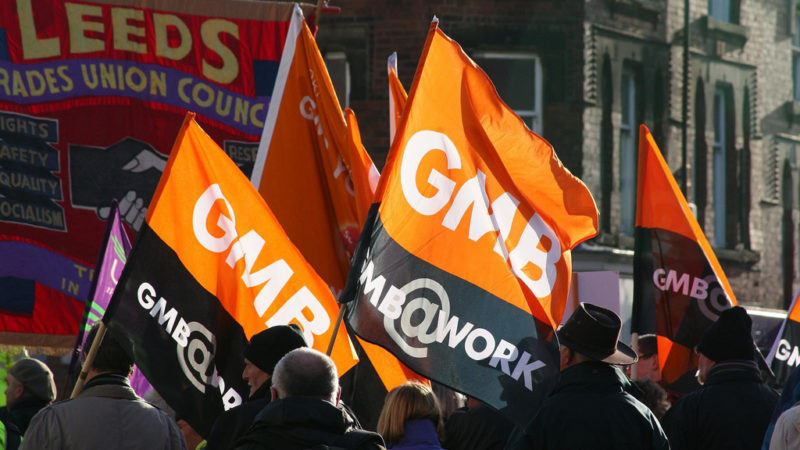
“The GMB is institutionally sexist.” That is the first line of Karon Monaghan QC’s report into the internal culture of one of the UK’s biggest trade unions and its handling of sexual harassment complaints. This truly damning indictment confirms what many of us already knew: the trade union movement has, to borrow a quote from the report, “a woman problem”.
Despite the many examples of fierce female trade unionists throughout history, the trade union movement has always looked and felt like a man’s world, thanks in part to a legacy of industrial action in male-dominated sectors. The reality is that the average union member is now a woman. Thanks to the high proportion of women joining unions in sectors like education, health and social care, union membership is recovering from its historic decline, increasing for the third consecutive year. The face of trade unionism is changing, but the rest of the movement has failed to catch up.
It’s sometimes assumed that organisations on the left are morally above the issues described in Monaghan’s report, that their values of equality and fairness are sacred and very rarely contradicted. This report, along with movements like LabourToo, have revealed just how blind and misguided that view is. While instances of serious sexual assault and harassment are not rare in trade union settings, the issue extends far beyond the criminal alone. Policies impacting women and their working lives are dismissed as fringe issues. Women are sidelined at election season, told their time will come. When women do reach positions of power, the rumours say it’s because they ‘slept their way to the top’. It’s not uncommon to go to a union branch meeting and be the only woman in the room.
I once worked on a zero-hour contract in a perfume shop and mentioned some problematic working practices in passing to a local union member. He laughed and told me that the unions in our highly industrial area “don’t have time to worry about girls selling beauty products to other girls”. On another occasion, I reported a physical assault at an election count, only to be told to “toughen up”.
Sexism, assault, harassment and bullying sadly exist across society, in every workplace and sector. But there is something particularly galling about the extent to which misogyny and discrimination exists and thrives in the very organisations that claim to protect us. How can a union fight to defend women from harassment in the workplace when its own employees face it every day? Why would any woman choose to trust her union with experiences of trauma when she sees predators in positions of leadership and power time and time again?
GMB has promised “real and lasting change” following the report’s publication. Monaghan makes 27 recommendations, from introducing regular awareness training to increasing the numbers of women in leadership roles across the union. If GMB really wants to see lasting change, they must implement the report’s recommendations in full, as well as publicly declaring a timetable for implementation. This action is non-negotiable, but it’s also only the first step. The report is clear that sexism in all its forms in deeply entrenched and that the GMB needs a complete cultural transformation. I think the same applies to the trade union movement as a whole.
We need to start seeing trade unions as places where women belong. I would like to challenge every union to open a consultation with its female members, collecting their experiences and analysing the extent of its own sexist cultures. If, as I suspect, this is an issue that exists just as much outside of GMB as it does within, it can no longer be acceptable to hide from the problem, or dismiss it as a sad but immutable part of trade union politics.
Trade unions are desperately needed now more than ever, especially as we head into one of the toughest economic periods most of us can remember. I want to be able to tell my female friends and family how important it is to join a union, how much more protection it can afford, and how comforting it feels to be part of something bigger than just yourself. None of us can do this in good conscience until women are protected in the spaces that they should feel safest. Monaghan’s report confirmed that trade unions have a problem with women, but it also offered an opportunity for change. Let’s hope it isn’t wasted.




More from LabourList
Ex-Cooper aide: ‘Keir’s ground-breaking deal with France suggests his migration approach could be bearing fruit’
Labour to scrap first past the post for mayoral and PCC elections
New intake Labour MPs: ‘Why we set up the Living Standards Coalition’